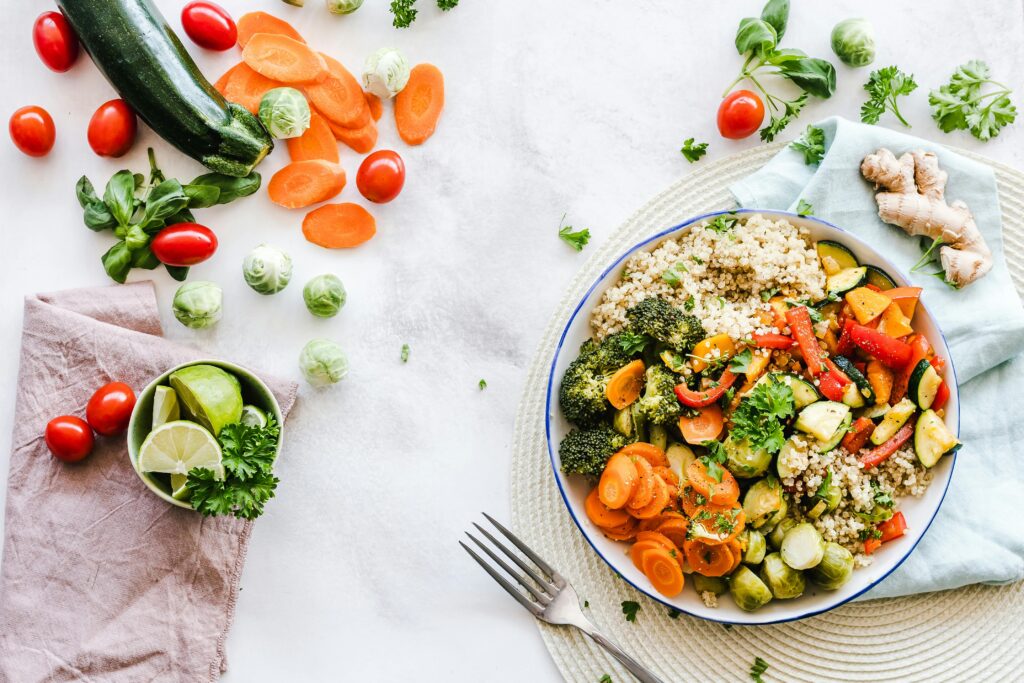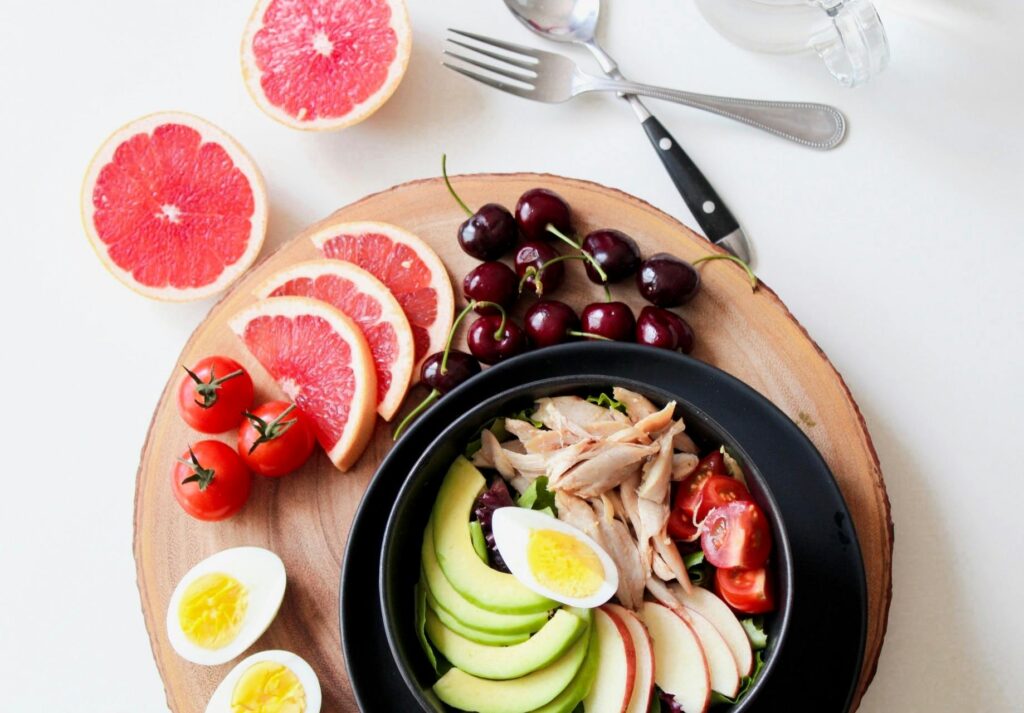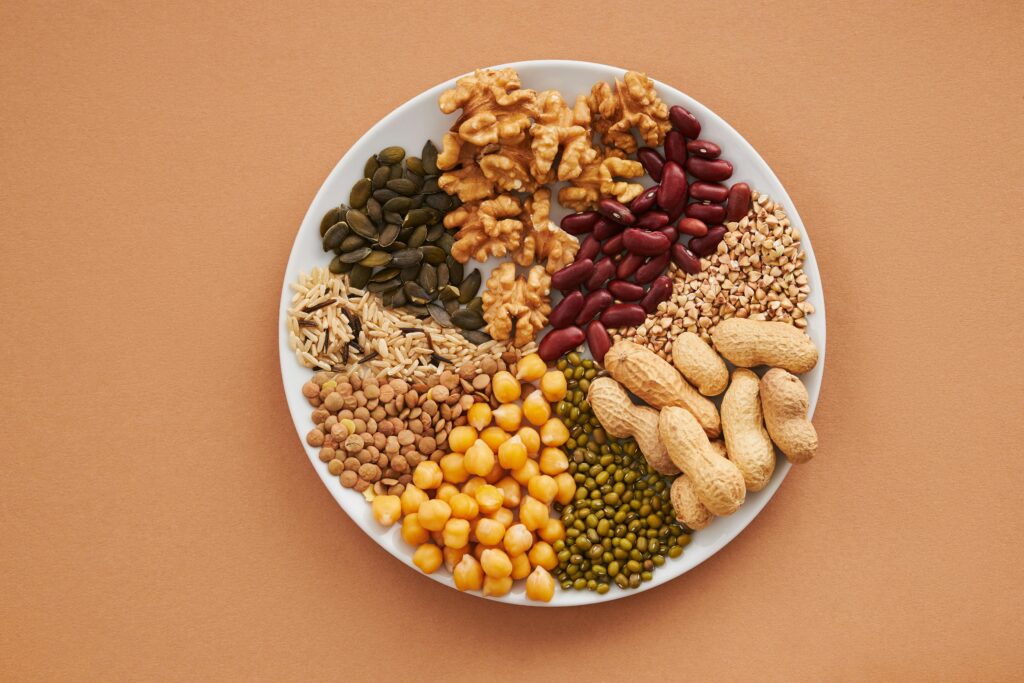
A balanced diet is one of the simplest yet most powerful ways to ensure a healthy and strong body. It’s about providing your body with the essential nutrients it needs to perform optimally. By including a variety of foods like fruits, vegetables, lean proteins, whole grains, and healthy fats in your meals, you can improve your energy levels, boost your immunity, and feel better overall. In this article, we will explore how each food group contributes to your health and why a balanced diet is so important for your well-being.
What is a Balanced Diet?

A balanced diet provides your body with all the essential nutrients in the right proportions. It ensures that you get enough vitamins, minerals, carbohydrates, proteins, and fats while keeping unhealthy elements like excess sugar and trans fats in check. Eating a variety of foods from each food group ensures you get all the nutrients your body needs.
Think of your body as a well-designed machine. For it to run smoothly, you need to fuel it with the right mix of ingredients. A balanced diet is that perfect mix!
The Magic of Fruits and Vegetables

Fruits and vegetables are nature’s gifts, packed with vitamins, minerals, and antioxidants. They play a vital role in keeping your body healthy and disease-free. These colorful foods are low in calories but rich in nutrients, making them ideal for maintaining a healthy weight and promoting overall wellness.
- Vitamins and Minerals: Fruits and vegetables are rich in essential nutrients like vitamin C, vitamin A, potassium, and magnesium. For example, oranges and kiwis are excellent sources of vitamin C, which boosts your immune system, while spinach and kale are loaded with iron and calcium.
- Antioxidants: These protect your body from harmful free radicals, which can cause cell damage and lead to chronic diseases. Antioxidants are especially abundant in berries like strawberries and blueberries.
- Fiber: Fruits and vegetables are great sources of dietary fiber, which helps with digestion, prevents constipation, and keeps you feeling full for longer.
Add a range of fruits and vegetables to your meal to add colour. Aim for at least 5 servings a day, and try to include different colors to get a wide range of nutrients. For example, have a banana with your breakfast, a salad for lunch, and a handful of carrots or an apple as a snack.
Lean Proteins: Building Blocks of the Body
Proteins are essential for building and repairing tissues, making enzymes, and supporting overall growth and development. Lean protein sources are particularly important because they provide all the benefits without adding excess unhealthy fats to your diet.
- Chicken and Turkey: These are excellent sources of lean protein and are lower in saturated fat compared to red meat.
- Fish: Fatty fish like salmon and mackerel are rich in omega-3 fatty acids, which are great for heart health and brain function.
- Eggs: A complete protein source, eggs contain all the essential amino acids your body needs.
- Plant-Based Proteins: Beans, lentils, tofu, and chickpeas are excellent options for vegetarians or anyone looking to reduce their meat consumption.
Include a portion of lean protein in every meal. For example, add grilled chicken to your salad, enjoy a boiled egg for breakfast, or prepare a hearty lentil soup for dinner.
Whole Grains: Fuel for Energy

Whole grains are a powerhouse of nutrients and a primary source of energy for your body. Unlike refined grains, which lose many of their nutrients during processing, whole grains retain their bran and germ, making them more nutritious.
- Complex Carbohydrates: Whole grains provide a steady release of energy, keeping you active throughout the day. Whole wheat bread, a grain called and brown rice are all great options.
- Fiber: Whole grains are rich in dietary fiber, which supports digestion, helps lower cholesterol levels, and stabilizes blood sugar.
- B Vitamins: These are essential for energy production and brain function, and whole grains like oats and barley are good sources.
Switch to whole-grain versions of common foods like bread, pasta, and rice. For breakfast, try oatmeal topped with fresh fruit, or enjoy a quinoa salad for lunch.
Healthy Fats: The Good Kind of Fat
Not all fats are bad! In fact, healthy fats are crucial for your body’s functioning. They provide energy, support cell growth, protect your organs, and help your body absorb certain vitamins.
- Avocados: Rich in monounsaturated fats, avocados are great for heart health and make a delicious addition to salads or toast.
- Nuts and Seeds: Almonds, walnuts, chia seeds, and flaxseeds are excellent sources of healthy fats and also provide protein and fiber.
- Olive Oil: A staple of the Mediterranean diet, olive oil is packed with monounsaturated fats and antioxidants.
- Fatty Fish: As mentioned earlier, fish like salmon and tuna are high in omega-3 fatty acids, which are essential for brain and heart health.
Incorporate healthy fats into your meals in moderation. Use olive oil for cooking, snack on a handful of nuts, or add a slice of avocado to your sandwich.
Benefits of a Balanced Diet

Eating a balanced diet has numerous benefits for your physical and mental health. Here are some of the key advantages:
- Boosts Energy Levels: A balanced diet provides a steady supply of energy, helping you stay active and focused throughout the day.
- Strengthens Immunity: The vitamins and minerals in fruits, vegetables, and other nutrient-rich foods help your body fight off infections and illnesses.
- Supports Healthy Weight: By focusing on nutrient-dense foods, a balanced diet helps prevent overeating and promotes a healthy weight.
- Improves Digestion: Fiber-rich foods support a healthy digestive system and prevent issues like constipation.
- Reduces Risk of Chronic Diseases: A balanced diet lowers the risk of conditions like heart disease, diabetes, and certain types of cancer.
- Enhances Mental Health: Nutrient-rich foods support brain health and can improve mood, memory, and overall mental well-being.
Tips for Maintaining a Balanced Diet
- Plan Your Meals: Take time to plan your meals for the week, ensuring you include foods from all the major food groups.
- Portion Control: Pay attention to portion sizes to avoid overeating.
- Limit Processed Foods: Minimize your intake of sugary drinks, fast food, and snacks high in unhealthy fats.
- Cook at Home: Preparing meals at home gives you more control over the ingredients and ensures healthier choices.
- Stay Consistent: Make healthy eating a habit, not a temporary change.
A balanced diet is not about strict rules or depriving yourself of foods you enjoy. It’s about making smart choices that nourish your body and mind. By including plenty of fruits, vegetables, lean proteins, whole grains, and healthy fats in your daily meals, you’ll be on the path to a healthier, stronger, and more vibrant life. Start small, make gradual changes, and enjoy the journey to better health—one delicious, nutritious bite at a time!












